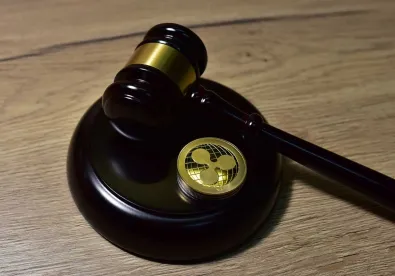Digital assets are an increasingly important part of modern society. That was the conclusion the UK Law Commission reached in its final report on digital assets that was published recently following a year-long consultation. In addition, the Law Commission observes that the flexibility of common law allows for the development of a distinct category of personal property that can better recognise, accommodate and protect the unique features of digital assets including cryptocurrencies. Two recent decisions highlight the courts putting into action this flexible and evolving approach when dealing with proprietary claims over cryptocurrencies.
In Joseph Keen Shing Law v Persons Unknown & Huobi Global Limited [2023] 1 WLUK 577, the court ordered that cryptocurrency funds held in an account offshore should be converted into fiat currency and transferred to the jurisdiction of England and Wales notwithstanding that those funds were already the subject of a worldwide freezing order.
The court was satisfied the cryptocurrency account contained the proceeds of a fraud that had been inflicted on the claimant. Whilst it was more difficult to maintain a strictly proprietary claim in relation to the funds credited to that account (i.e. to show that those were the monies of the claimant or the traceable proceeds thereof), the claimant had succeeded in obtaining, albeit by default, judgments for his personal causes of action in relation to the losses. The account was plainly controlled by the defendants responsible for the fraud and in those circumstances, in the normal way, there would be an ability to enforce a monetary order if the accounts were maintained in England.
The court recognised that, whilst the fourth defendant (the operator of the cryptocurrency exchange) was not permitting the other defendants access to the account, that position may not necessarily continue. The court also recognised that it had no control over any of the relevant defendants, all of whom were based exclusively outside the jurisdiction of the court (and, aside from the fourth defendant exchange, had not engaged in the proceedings).
The court considered it appropriate for the funds to be paid into the Court Fund’s Office to enable the claimant to apply for execution against those sums. The court recognised that there was a risk that the funds would be dissipated and had regard to the policy of enforcing judgments entered by court. The court also considered, having regard to the judgments obtained by the claimant, that there was no dispute about the funds having been acquired by the defendants as a result of the alleged wrongdoing.
By contrast, in the recent decision of Piroozzadeh v Persons Unknown 2023 EWHC 1024 (CH), the court discharged an interim proprietary injunction against the eighth defendant, a cryptocurrency exchange, on the basis that the claimants had failed in their duty of fair presentation and held that the injunction should not have been granted without notice.
In doing so, the court held that:
|
1. |
|
the claimant did not properly explain the defences likely to be available to the cryptocurrency exchange in respect of its alleged liability as a constructive trustee. It was material that the cryptocurrency (Tether) had been swept from the user accounts into a pool and the users were then granted credit in the amount of the value swept. The cryptocurrency exchange therefore constituted a purchaser, and was no longer susceptible to any remedy at the suit of the claimant so long as it acted bona fide. The assertion by the claimant that its Tether was currently “in the Exchange Defendants’ control” was obviously incorrect in the light of what occurred when the Tether was pooled; |
|
2. |
|
the duty was on the claimant to identify and anticipate likely defences and that, if as a result of their involvement in other litigation, the claimant’s legal representatives were aware of possible defences, they should have drawn them to the court’s attention; |
|
3. |
|
it was not clear why damages were said not to be an adequate remedy as against the eighth defendant, and the claimant had not explained it. The court held that “the injunction can serve no useful purpose because it is wholly impracticable for the [cryptocurrency exchange] to preserve the deposited Tether in circumstances where there has been no explanation as to how as a practical matter it might be possible for the claimant to trace into his Tether or their traceable proceeds in the hand of the [cryptocurrency exchange].” The evidence is overwhelming that they had long since been mixed and dissipated in the pooled addresses; |
|
4. |
|
similarly, the claimant did not explain how it was that the cryptocurrency exchange would in practice be able to comply with the order, i.e. how it was able to freeze, or indeed identify, the traceable proceeds of the relevant Tether in light of the pooling structure of which the claimant’s expert and legal representatives were aware. |
Taken together, the consequence was that the claimant had failed in its duty of fair presentation and the injunction against the eighth defendant should be discharged. The court held that the duty extends not just to a fair presentation of the underlying facts, but also to the way in which those facts might reasonably be expected to support a defence. The duty was more acute where there had been a delay from the time of the fraud and, indeed, from the time at which the investigation had started.
Finally, the court observed the importance of not lumping all defendants into the same box and the duty is on the claimant to apprise the court of the clear distinction between the separate positions of the various defendants. It is also important that the nature of claims against exchanges, who can often find themselves joined as respondents for the purposes of the grant of Bankers Trust relief and/or injunctive relief, are properly differentiated, and it should be clear whether they are accused of any substantive wrongdoing.
Key Takeaways
Both cases demonstrate the difficulties with establishing a proprietary claim where the claimant’s cryptocurrency has been pooled and mixed. As a result, the question of whether it is appropriate to seek a proprietary injunction against a cryptocurrency exchange which, itself, has not been accused of any wrongdoing has been brought into sharp focus. It is important to consider the position of each defendant separately and assess the claims and remedies sought against each distinguishing those who are accused of wrongdoing from those who are not. Provided the appropriate claims are sought and established, the court will be prepared to take steps to assist the claimant with enforcement. Inevitably, in light of the Law Commission’s findings, this is an area of law that will continue to be honed before courts.



 />i
/>i

